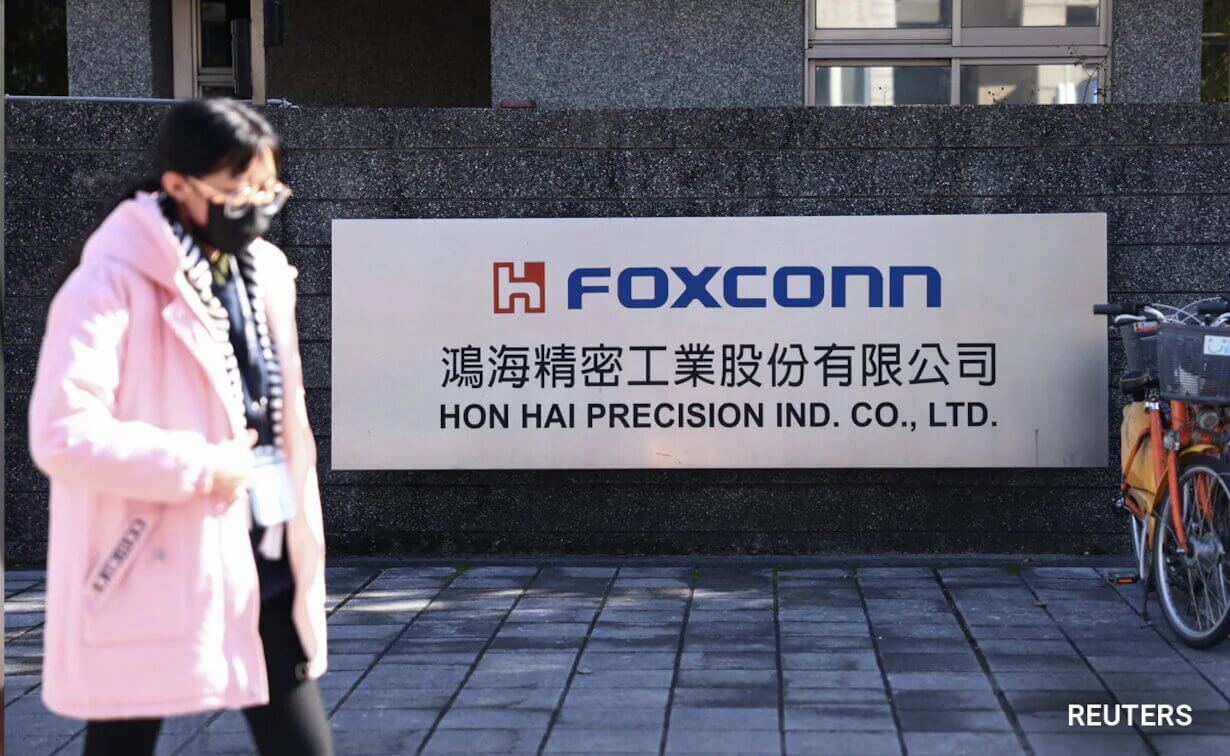Taiwan-based Hon Hai Technology Group, better known as Foxconn, said on Monday that it had withdrawn from a $19.5 billion semiconductor joint venture with Indian metals-to-oil conglomerate Vedanta, possibly marking a setback of sorts to Indian PM Narendra Modi’s chipmaking hopes for India.
Foxconn Withdraws from Joint Venture
Foxconn, the world’s largest contract electronics manufacturer, and Vedanta agreed last year to set up semiconductor and display production plants in the Indian state of Gujarat. Under the $19.5 billion joint venture, the two companies planned to build a production unit in Gujarat that could generate 28-nanometer semiconductors.
In a statement, Foxconn said that it had worked for more than a year with Vedanta to bring “a great semiconductor idea to reality,” but that they had mutually decided to end the joint venture, and that it would be removing its name from an entity that would now be entirely owned by Vedanta.
The firm stated, “In order to explore more diverse development opportunities, according to a mutual agreement, Foxconn has determined it will not move forward on the joint venture with Vedanta.”
Foxconn was keen to emphasise that it was not breaking away from the Indian semiconductor market entirely and that it continued to assist the Indian government’s domestic chipmaking initiatives.
According to a statement issued by the company, “This is not a negative. There was recognition from both sides that the project was not moving fast enough. There were challenging gaps we were not able to smoothly overcome, as well as external issues unrelated to the project.” Foxconn has stated that it intends to apply for incentives provided by the government in its semiconductor strategy.
The company also assured that it will “establish a diversity of local partnerships that meet the needs of stakeholders.” The companies had applied under the modified production-linked incentive plan, which would have covered 50% of the project’s cost.
According to a source familiar with the situation, Foxconn’s decision to withdraw from the venture was affected by concerns about delays in collecting incentives from the Indian government. The source added that New Delhi raised issues with the cost estimates provided to obtain incentives, contributing to the decision.
Timeline: Foxconn withdraws from $19.5 bln Vedanta chip plan in India https://t.co/mLxr9sI9v7 pic.twitter.com/8J7OkTkGh6
— Reuters (@Reuters) July 10, 2023
Vedanta to Link with Other Partners
In a statement that did not refer to Foxconn, Vedanta said it would sign with other partners to help set up India’s first foundry.
“We will continue to grow our Semiconductor team, and we have a licence for production-grade technology for 40nm [chips] from a prominent Integrated Device Manufacturer (IDM),” the company claimed.
The Indian government has stated that it is confident in attracting investors for chip making. The government announced last month that US-based company Micron intends to develop a $2.7 billion semiconductor assembly, packaging, and testing plant in India.
India’s Response
While some reports claimed that Foxconn’s withdrawal had hampered PM Modi’s chip making plans for India, the Central Government confirmed that it had no such impact.
Rajeev Chandrasekhar, Indian Minister of State for Electronics and Information Technology (MoS IT), claimed on Twitter that Foxconn’s withdrawal from the partnership would not impact India’s semiconductor goals.
“This decision of Foxconn to withdraw from its JV with Vedanta has no impact on India’s #Semiconductor Fab goals. None [...] India is just getting started,” said the minister.
Taiwanese electronics manufacturer #Foxconn's decision to pull out of #Vedanta joint venture has no impact on India's semiconductor fabrication plant goal, minister of state for electronics and IT @Rajeev_GoI said.https://t.co/KteoLeMg8z
— Mint (@livemint) July 11, 2023
Chandrasekhar added that “It’s not for the government to get into why or how two private companies choose to partner or choose not to, but in simple terms ... both companies can and will now pursue their strategies in India independently, and with appropriate technology partners in Semiconductors and Electronics.”
PM Modi has prioritised chip making as a key element of India’s economic plan, intending to build a domestic chip manufacturing industry and attract global investment for the first time. India, which believes its semiconductor industry will be worth $63 billion by 2026, received three proposals to set up plants last year as part of a $10 billion incentive scheme.
However, according to Neil Shah, the Vice President of Research at Counterpoint, the collapse of the Foxconn-Vedanta contract represents a setback for India’s “Make in India” effort. He believes the situation reflects poorly on Vedanta and raises concerns for other companies considering partnerships in India.

